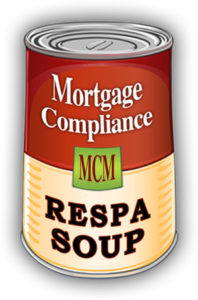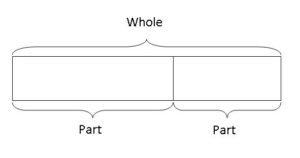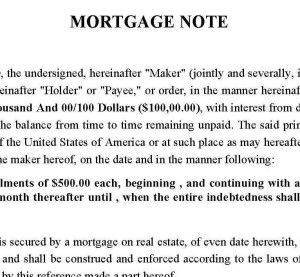CitiMortgage complained that a borrower made his mortgage payments late under a Trial Period Plan, and was thus ineligible for a loan modification. The borrower countered that he satisfied the TPP’s grace period for payments and the Fifth Circuit agreed: “[T]he TPP establishes a grace period. It accepts payment so long as it is made ‘in the month in which it is due.’ Neither the TPP nor the parties use the term ‘grace period’ to describe this language. But that is plainly what the text contemplates. And no one disputes that Burbridge’s payments comply with the governing grace periods.” Burbridge v. Citi Mortgage, No. 21-40309 (June 16, 2022).
Category Archives: Consumer – Mortgage Servicing
 Casalicchio received a pre-foreclosure notice that “contained a deadline thirty days from the day the notice was printed, even though the deed of trust called for a deadline thirty days from the day the letter was mailed.” (emphasis in original). Unfortunately for Casalicchio, while the Fifth Circuit acknowledged older Texas cases that refer to an “absolute” right to “strict compliance” with a deed of trust, the Court concluded: “Since the 1980s, the Texas Supreme Court has repeatedly moderated its rule that the ‘terms of a deed of trust must be strictly followed,’ clarifying recently that harmless mistakes do not void otherwise-valid foreclosure sales.” The defect in his notice was thus “but a ‘minor defect,’ insufficiently prejudicial to justify setting aside an otherwise valid foreclosure sale.” Casalacchio v. BOKF, N.A., No. 19-20246 (March 6, 2020) (applying, inter alia, Hemyari v. Stephens, 355 S.W.3d 623 (Tex. 2011)).
Casalicchio received a pre-foreclosure notice that “contained a deadline thirty days from the day the notice was printed, even though the deed of trust called for a deadline thirty days from the day the letter was mailed.” (emphasis in original). Unfortunately for Casalicchio, while the Fifth Circuit acknowledged older Texas cases that refer to an “absolute” right to “strict compliance” with a deed of trust, the Court concluded: “Since the 1980s, the Texas Supreme Court has repeatedly moderated its rule that the ‘terms of a deed of trust must be strictly followed,’ clarifying recently that harmless mistakes do not void otherwise-valid foreclosure sales.” The defect in his notice was thus “but a ‘minor defect,’ insufficiently prejudicial to justify setting aside an otherwise valid foreclosure sale.” Casalacchio v. BOKF, N.A., No. 19-20246 (March 6, 2020) (applying, inter alia, Hemyari v. Stephens, 355 S.W.3d 623 (Tex. 2011)).
 “In their Fourth Amended Complaint, the Bowmans make claims under the [Texas Debt Collection Act] without citing the appropriate sections of the statute for each claim. CitiMortgage raised this issue, and the Bowmans responded that they provided enough information for CitiMortgage to figure out which provisions it violated. As the district court reasoned, this is insufficient to provide fair notice to the defendant under Federal Rule of Civil Procedure 8(a).” Bowman v. CitiMortgage, No. 18-10867 (April 12, 2019) (unpublished).
“In their Fourth Amended Complaint, the Bowmans make claims under the [Texas Debt Collection Act] without citing the appropriate sections of the statute for each claim. CitiMortgage raised this issue, and the Bowmans responded that they provided enough information for CitiMortgage to figure out which provisions it violated. As the district court reasoned, this is insufficient to provide fair notice to the defendant under Federal Rule of Civil Procedure 8(a).” Bowman v. CitiMortgage, No. 18-10867 (April 12, 2019) (unpublished).
Wease established ambiguity in two as pects of a deed of trust. With respect to when a servicer could pay the borrower’s property taxes by the servicer, the key provision used the fact-specific phrase “reasonable or appropriate”; other provisions both suggested that the power was limited to back taxes, but also that it could be made “at any time.” Accordingly, “Wease was entitled to proceed to trial on his claim that Ocwen breached the contract by paying his 2010 taxes before the tax lien attached and before they became delinquent.” This analysis led to finding a triable fact issue as to whether Ocwen provided adequate notice of its actions. Wease v. Ocwen Loan Servicing, No. 17-01574 (Jan. 4, 2019). A revised opinion eliminated some statements about tax liens and when they took effect.
pects of a deed of trust. With respect to when a servicer could pay the borrower’s property taxes by the servicer, the key provision used the fact-specific phrase “reasonable or appropriate”; other provisions both suggested that the power was limited to back taxes, but also that it could be made “at any time.” Accordingly, “Wease was entitled to proceed to trial on his claim that Ocwen breached the contract by paying his 2010 taxes before the tax lien attached and before they became delinquent.” This analysis led to finding a triable fact issue as to whether Ocwen provided adequate notice of its actions. Wease v. Ocwen Loan Servicing, No. 17-01574 (Jan. 4, 2019). A revised opinion eliminated some statements about tax liens and when they took effect.
 In a residential foreclosure case, the borrower alleged that the bank/lender was vicariously liable for alleged RESPA violations by the servicer. Noting that it was the first federal circuit court to address the point, the Fifth Circuit found that the lender could not be held vicariously liable. The regulation at issue imposed duties only on
In a residential foreclosure case, the borrower alleged that the bank/lender was vicariously liable for alleged RESPA violations by the servicer. Noting that it was the first federal circuit court to address the point, the Fifth Circuit found that the lender could not be held vicariously liable. The regulation at issue imposed duties only on
servicers. (12 C.F.R. § 1024.41(c)(1) (“[A] servicer shall . . .”)) And when Congress wanted to expand liability, it used language showing its intent to do so. (12 U.S.C. § 2607 (saying that “no person” will pay kickbacks or unearned fees)). Christiana Trust v. Riddle, No. 17-11429 (Dec. 21, 2018).
 In addition to inspiring 600Camp’s most painful pun of 2018, Ditech Financial LLC v. Naumann provides a thorough summary of the requirement – unique to default judgments, among all judgments available under the Federal Rules – that the relief awarded “must not differ in kind from, or exceed in amount, what is demanded in the pleadings.” As applied here, “Ditech’s demand for judicial foreclosure gave meaningful notice that, in the event of default, a writ of possession would issue in favor of the foreclosure-sale purchaser. Texas’s process of enforcing a judicial foreclosure—and specifically its mechanism for enforcing the foreclosure sale— entails issuance of the writ. Accordingly, in this case the judgment’s provision for future issuance of the writ did not expand or alter the kind or amount of relief prayed for by Ditech.” No. 17-50616 (July 19, 2018, unpublished).
In addition to inspiring 600Camp’s most painful pun of 2018, Ditech Financial LLC v. Naumann provides a thorough summary of the requirement – unique to default judgments, among all judgments available under the Federal Rules – that the relief awarded “must not differ in kind from, or exceed in amount, what is demanded in the pleadings.” As applied here, “Ditech’s demand for judicial foreclosure gave meaningful notice that, in the event of default, a writ of possession would issue in favor of the foreclosure-sale purchaser. Texas’s process of enforcing a judicial foreclosure—and specifically its mechanism for enforcing the foreclosure sale— entails issuance of the writ. Accordingly, in this case the judgment’s provision for future issuance of the writ did not expand or alter the kind or amount of relief prayed for by Ditech.” No. 17-50616 (July 19, 2018, unpublished).
 The issue in Kirchner v. Deutsche Bank was whether a spouse’s signature on a deed of trust – but not the loan instrument – satisfied the Texas Constitution’s requirements about home equity loans. The Fifth Circuit found the issue was squarely addressed by a prior unpublished opinion, which it called “persuasive,” and affirmed – this time, in a published opinion. The broader principle is that unpublished opinions can work their way into published “status” when the issues they address are recurring ones. No. 17-50736 (July 11, 2018).
The issue in Kirchner v. Deutsche Bank was whether a spouse’s signature on a deed of trust – but not the loan instrument – satisfied the Texas Constitution’s requirements about home equity loans. The Fifth Circuit found the issue was squarely addressed by a prior unpublished opinion, which it called “persuasive,” and affirmed – this time, in a published opinion. The broader principle is that unpublished opinions can work their way into published “status” when the issues they address are recurring ones. No. 17-50736 (July 11, 2018).
 Before a lender may accelerate a debt (and later foreclose), Texas law requires that the lender send (1) notice of intent to accelerate, followed by (2) notice of acceleration. While “Texas courts have not squarely confronted whether a borrower is entitled to a new round of notice when a borrower re-accelerates following an earlier rescission,” the Fifth Circuit concluded “that the Texas Supreme Court would require such notice . . . Abandonment of acceleration ‘restor[es] the contract to its original condition.’ The Texas Supreme Court would likely conclude that Wilmington Trust acted ‘inconsistently’ by rescinding acceleration and then re-accelerating without notice.” Wilmington Trust v. Rob, No. 17-50115 (May 21, 2018).
Before a lender may accelerate a debt (and later foreclose), Texas law requires that the lender send (1) notice of intent to accelerate, followed by (2) notice of acceleration. While “Texas courts have not squarely confronted whether a borrower is entitled to a new round of notice when a borrower re-accelerates following an earlier rescission,” the Fifth Circuit concluded “that the Texas Supreme Court would require such notice . . . Abandonment of acceleration ‘restor[es] the contract to its original condition.’ The Texas Supreme Court would likely conclude that Wilmington Trust acted ‘inconsistently’ by rescinding acceleration and then re-accelerating without notice.” Wilmington Trust v. Rob, No. 17-50115 (May 21, 2018).
 A recent opinion in a real estate foreclosure dispute summarizes the current state of the law on some key principles:
A recent opinion in a real estate foreclosure dispute summarizes the current state of the law on some key principles:
- When a national bank is sued as trustee in such a case, its citizenship contrrols the analysis of diversity, not that of the investors in the trust (applying and distinguishing Americold Realty Trust v. ConAgra Foods, 136 S. Ct. 1012 (2016));
- Because “Texas follows the common-law maxim that the mortage follows the note,” the trustee was “entitled to foreclosre on the property as holder of the note even if the assignment of the Deed of Trust was void.oserves as trustee of a real estate investment trust”; and
- A fraud claim failed when the aggrieved party “did not allege that he initially intended to bid on the property before learning of a potential buyer and changed his position after speaking with U.S. Bank’s representatives.”
SGK Properties LLC v. US Bank, N.A., No. 17-20130 (Feb. 9, 2018).
 Castrellon sought to enforce a loan modification agreement; the defendants asserted a mutual mistake about Castrellon’s ability to sign the agreement without also obtaining the agreement of her ex-husband. Noting that she could be left empty-handed otherwise, the Fifth Circuit found a fact issue on that defense: “[T]he mere fact that the agreement may ultimately leave [her] empty-handed does not compel the conclusion that there was a mutual mistake . . . . [N]onetheless, it does support an inference that the parties mistakenly believed they could modify the loan agreement without [him] – an inference that we are required to draw at this juncture.” Castrellon v. Ocwen Loan Servicing, No. 17-40193 (Feb. 21, 2018, unpublished).
Castrellon sought to enforce a loan modification agreement; the defendants asserted a mutual mistake about Castrellon’s ability to sign the agreement without also obtaining the agreement of her ex-husband. Noting that she could be left empty-handed otherwise, the Fifth Circuit found a fact issue on that defense: “[T]he mere fact that the agreement may ultimately leave [her] empty-handed does not compel the conclusion that there was a mutual mistake . . . . [N]onetheless, it does support an inference that the parties mistakenly believed they could modify the loan agreement without [him] – an inference that we are required to draw at this juncture.” Castrellon v. Ocwen Loan Servicing, No. 17-40193 (Feb. 21, 2018, unpublished).
 While the mortgage debtor was in default, a notice provision in the related deed of trust was an independent obligation, the breach of which could support a stand-alone action against the foreclosing party. “If performance of the terms of a deed of trust governing the parties’ rights and obligations in the event of default can always be excused by pointing to the debtor’s default under the terms off the note, the notice terms have no meaning.” That said, the Court noted that on remand, the claim would have to withstand attacks on thie measure of damage as well as causation. Williams v. Wells Fargo Bank, No. 16-20507 (Feb. 26, 2018).
While the mortgage debtor was in default, a notice provision in the related deed of trust was an independent obligation, the breach of which could support a stand-alone action against the foreclosing party. “If performance of the terms of a deed of trust governing the parties’ rights and obligations in the event of default can always be excused by pointing to the debtor’s default under the terms off the note, the notice terms have no meaning.” That said, the Court noted that on remand, the claim would have to withstand attacks on thie measure of damage as well as causation. Williams v. Wells Fargo Bank, No. 16-20507 (Feb. 26, 2018).
 Among other holdings in a hard-fought wrongful foreclosure action, the Fifth Circuit made two observations about the FDCPA in Mahmoud v. DeMoss Owners Association. First, while language on the first page of a letter suggested that action was required in less than 30 days, the next page of that letter clearly gave the required 30-day action period in three places, and thus did not violate the FDCPA. Second, even though “a small portion of the debt may have been time-barred,” in the context of a non-judicial foreclosure controlled by state law, that matter alone would not create an FDCPA violation. A dissent had a different view of the point, and “would hold instead that, consistent with the text and spirit of the Act, demanding full repayment of a partiaally time-barred debt under the threat of forecloosure – implying that the entirety of the debt is legally enforceable – violates the FDCPA.” No. 15-20618 (July 28, 2017).
Among other holdings in a hard-fought wrongful foreclosure action, the Fifth Circuit made two observations about the FDCPA in Mahmoud v. DeMoss Owners Association. First, while language on the first page of a letter suggested that action was required in less than 30 days, the next page of that letter clearly gave the required 30-day action period in three places, and thus did not violate the FDCPA. Second, even though “a small portion of the debt may have been time-barred,” in the context of a non-judicial foreclosure controlled by state law, that matter alone would not create an FDCPA violation. A dissent had a different view of the point, and “would hold instead that, consistent with the text and spirit of the Act, demanding full repayment of a partiaally time-barred debt under the threat of forecloosure – implying that the entirety of the debt is legally enforceable – violates the FDCPA.” No. 15-20618 (July 28, 2017).
 In a thorough review of several basic issues that arise in litigation about residential foreclosures, the Fifth Circuit addressed whether the citizenship of a mortgage securitization trust is determined by the citizenship of the trustee, or the citizenship of all the trust’s interest holders. While the traditional rule is that the citizenship of the trustee controls, Navarro Savings Ass’n v. Lee, 446 U.S. 458 (1980), the borrower argued that a more recent case about the citizenship of a REIT should control, Americold Relay Trust v. Conagra Foods, 136 S. Ct. 1012 (2016). Because the defendant bank was sued in its capacity as trusteee, and because the terms of the Pooling and Service Agreement assigned “real and substantial” control to the bank, the Court elected to follow Navarro. Bynane v. The Bank of New York Mellon, No. 16-20598 (August 4, 2017) (Navarro was sucessfully argued in the Supreme Court by my former law partner James Ellis, an excellent lawyer and as shown above, a star quarterback at Texas Tech in the early 1960s).
In a thorough review of several basic issues that arise in litigation about residential foreclosures, the Fifth Circuit addressed whether the citizenship of a mortgage securitization trust is determined by the citizenship of the trustee, or the citizenship of all the trust’s interest holders. While the traditional rule is that the citizenship of the trustee controls, Navarro Savings Ass’n v. Lee, 446 U.S. 458 (1980), the borrower argued that a more recent case about the citizenship of a REIT should control, Americold Relay Trust v. Conagra Foods, 136 S. Ct. 1012 (2016). Because the defendant bank was sued in its capacity as trusteee, and because the terms of the Pooling and Service Agreement assigned “real and substantial” control to the bank, the Court elected to follow Navarro. Bynane v. The Bank of New York Mellon, No. 16-20598 (August 4, 2017) (Navarro was sucessfully argued in the Supreme Court by my former law partner James Ellis, an excellent lawyer and as shown above, a star quarterback at Texas Tech in the early 1960s).
 By summary judgment, Advanced Recovery Systems lost a case brought under section 8 of the Fair Debt Collection Practices Act, alleging that it failed to disclose on credit reports that the plaintiff disputed two allegedly unpaid debts. Procedurally, while the summary judgment did not follow the traditional Rule 56 schedule, the Fifth Circuit found no harm because ARS had admitted to the district court that there were no remaining issues of fact. Substantively, the Court rejected a challenge to Article III standing, finding that the plaintiff’s injury was sufficiently “tangible” — “[T]he violation of a procedural right granted by statute can be sufficient in some circumstances to constitute injury in fact .. . . Among those circumstances are cases where a statutory violation creates the ‘risk of real harm’ . . . Unlike an incorrect zip code, the ‘bare procedural violation’ in [Spokeo, Inc. v. Robins, 136 S. Ct. 1540, 1549 (2016)], an inaccurate credit rating creates a substantial risk of harm.” Sayles v. Advanced Recovery Systems, Inc., No. 16-60640 (July 6, 2017).
By summary judgment, Advanced Recovery Systems lost a case brought under section 8 of the Fair Debt Collection Practices Act, alleging that it failed to disclose on credit reports that the plaintiff disputed two allegedly unpaid debts. Procedurally, while the summary judgment did not follow the traditional Rule 56 schedule, the Fifth Circuit found no harm because ARS had admitted to the district court that there were no remaining issues of fact. Substantively, the Court rejected a challenge to Article III standing, finding that the plaintiff’s injury was sufficiently “tangible” — “[T]he violation of a procedural right granted by statute can be sufficient in some circumstances to constitute injury in fact .. . . Among those circumstances are cases where a statutory violation creates the ‘risk of real harm’ . . . Unlike an incorrect zip code, the ‘bare procedural violation’ in [Spokeo, Inc. v. Robins, 136 S. Ct. 1540, 1549 (2016)], an inaccurate credit rating creates a substantial risk of harm.” Sayles v. Advanced Recovery Systems, Inc., No. 16-60640 (July 6, 2017).
The common situtation of a loan modification raised two general issues – (1) given the princple that “all parts of a contract should be read so that none will be rendered meaningless,” the outcome is not clear if a modification has a signature line, when companied by “contratual language [that] indicated that once the [borrowers] performed, their loan would be modified automatically and [the servicer] would be bound by the Agreement” – and (2) given that the Statute of Frauds in Texas for loan agreements generally involves oral agreements or agreements that clearly require signature by both parties, it is not clear if “the written offer itself, along with the attached Modification Agreement” would satisfy that status. Owens v. Specialized Loan Servicing LLC, No. 16-20557 (June 5, 2017).
 In Ocwen Loan Servicing LLC v. Berry, a dispute about a home equity loan, the Fifth Circuit confirmed that “we now must follow the Texas Supreme Court’s holding in [Wood v. HSBC Bank USA, N.A., 505 S.W.3d 542 (Tex. 2016)] that no statute of limitations applies to a borrower’s allegations of violations of section 50(a)(6) of the Texas Constitution in a quiet title action, rather than our prior holding in [Priester v. JP Morgan Chase Bank, N.A., 708 F.3d 667 (5th Cir. 2013)].” In so doing, the Court reminded that “the issues-not-briefed-are-waived rule is a prudential construct that requires the exercise of discretion,” and addressed the applicability of Wood notwithstanding the appellant not discussing the case in its opening brief, noting that the underlying issues had been briefed, and that the Court had received supplemental briefing on the pure question of law presented about the application of Wood. No. 16-10604 (March 29, 2017).
In Ocwen Loan Servicing LLC v. Berry, a dispute about a home equity loan, the Fifth Circuit confirmed that “we now must follow the Texas Supreme Court’s holding in [Wood v. HSBC Bank USA, N.A., 505 S.W.3d 542 (Tex. 2016)] that no statute of limitations applies to a borrower’s allegations of violations of section 50(a)(6) of the Texas Constitution in a quiet title action, rather than our prior holding in [Priester v. JP Morgan Chase Bank, N.A., 708 F.3d 667 (5th Cir. 2013)].” In so doing, the Court reminded that “the issues-not-briefed-are-waived rule is a prudential construct that requires the exercise of discretion,” and addressed the applicability of Wood notwithstanding the appellant not discussing the case in its opening brief, noting that the underlying issues had been briefed, and that the Court had received supplemental briefing on the pure question of law presented about the application of Wood. No. 16-10604 (March 29, 2017).
 Recipients of Section 8 housing assistance sued mortgage originators, complaining that the originators either denied or discouraged the recipients’ credit applications by not considering their Section 8 income, in violation of the Equal Credit Opportunity Act. The Fifth Circuit affirmed the dismissal of claims by recipients who had only inquired about, rather than actually starting, the application process, as well as claims based on Wells Fargo’s policies about the purchase of mortgages in the secondary market. It reversed as to one group of applicants, however, finding under Iqbal and the substantive law that they “plausibly alleged that AmeriPro refused to consider their Section 8 income in assessing their creditworthiness as mortgage applicants, and that they received mortgages on less favorable terms and in lesser amounts than they would have had their Section 8 income been considered.” Alexander v. AmeriPro, No. 15-20710 (Feb. 16, 2017).
Recipients of Section 8 housing assistance sued mortgage originators, complaining that the originators either denied or discouraged the recipients’ credit applications by not considering their Section 8 income, in violation of the Equal Credit Opportunity Act. The Fifth Circuit affirmed the dismissal of claims by recipients who had only inquired about, rather than actually starting, the application process, as well as claims based on Wells Fargo’s policies about the purchase of mortgages in the secondary market. It reversed as to one group of applicants, however, finding under Iqbal and the substantive law that they “plausibly alleged that AmeriPro refused to consider their Section 8 income in assessing their creditworthiness as mortgage applicants, and that they received mortgages on less favorable terms and in lesser amounts than they would have had their Section 8 income been considered.” Alexander v. AmeriPro, No. 15-20710 (Feb. 16, 2017).
 CitiMortgage sought to foreclose on Maldonado’s home; in the subsequent litigatoin, it offered summary judgment evidence that he owed a balance of $533,960.80. In response, Maldonado “disputed the amounts that CitiMortgage claimed in attorneys’ fees, inspection fees, escrow, taxes, and late charges,” but did “not provide any evidence of what the correct amounts should be.” Maldonado v. CitiMortgage, No. 16-20541 (Jan. 23, 2017, unpublished).
CitiMortgage sought to foreclose on Maldonado’s home; in the subsequent litigatoin, it offered summary judgment evidence that he owed a balance of $533,960.80. In response, Maldonado “disputed the amounts that CitiMortgage claimed in attorneys’ fees, inspection fees, escrow, taxes, and late charges,” but did “not provide any evidence of what the correct amounts should be.” Maldonado v. CitiMortgage, No. 16-20541 (Jan. 23, 2017, unpublished).
 Foster sued about a foreclosure; the state court granted a TRO (so no foreclosure occurred); and the mortgage servicer defendants removed and obtained summary judgment. Foster challenged the denial of her motion to remand, arguing that she did not improperly join the substitute trustee appointed to conduct the foreclosure sale. The Fifth Circuit affirmed: “[B]reach of a trustee’s duty does not constitute an independent tort; rather, it yields a cause of action for wrongful foreclosure. A claim of wrongful foreclosure cannot succeed, however, when no foreclosure has occurred.” Foster v. Deutsche Bank, No. 16-11045 (Feb. 8, 2017).
Foster sued about a foreclosure; the state court granted a TRO (so no foreclosure occurred); and the mortgage servicer defendants removed and obtained summary judgment. Foster challenged the denial of her motion to remand, arguing that she did not improperly join the substitute trustee appointed to conduct the foreclosure sale. The Fifth Circuit affirmed: “[B]reach of a trustee’s duty does not constitute an independent tort; rather, it yields a cause of action for wrongful foreclosure. A claim of wrongful foreclosure cannot succeed, however, when no foreclosure has occurred.” Foster v. Deutsche Bank, No. 16-11045 (Feb. 8, 2017).
 Last year, the Fifth Circuit certified these two questions to the Texas Supreme Court:
Last year, the Fifth Circuit certified these two questions to the Texas Supreme Court:
1. Does a lender or holder violate Article XVI, Section 50(a)(6)(Q)(vii) of the Texas Constitution, becoming liable for forfeiture of principal and interest, when the loan agreement incorporates the protections of Section 50(a)(6)(Q)(vii), but the lender or holder fails to return the cancelled note and release of lien upon full payment of the note and within 60 days after the borrower informs the lender or holder of the failure to comply?
2. If the answer to Question 1 is “no,” then, in the absence of actual damages, does a lender or holder become liable for forfeiture of principal and interest under a breach of contract theory when the loan agreement incorporates the protections of Section 50(a)(6)(Q)(vii), but the lender or holder, although filing a release of lien in the deed records, fails to return the cancelled note and release of lien upon full payment of the note and within 60 days after the borrower informs the lender or holder of the failure to comply?
The T exas Supreme Court answered both questions “no” in Garofolo v. Ocwen Loan Servicing, No. 15-0437 (Tex. May 20, 2016). Accordingly, the Fifth Circuit affirmed the dismissal of the plaintiff’s contract claim in Garofolo v. Ocwen Loan Servicing, No. 14-51156 (Oct. 3, 2016, unpublished).
exas Supreme Court answered both questions “no” in Garofolo v. Ocwen Loan Servicing, No. 15-0437 (Tex. May 20, 2016). Accordingly, the Fifth Circuit affirmed the dismissal of the plaintiff’s contract claim in Garofolo v. Ocwen Loan Servicing, No. 14-51156 (Oct. 3, 2016, unpublished).
“ We now make explicit what we have held in unpublished, nonprecedential opinions. HUD regulations govern the relationship between the reverse-mortgage lender and HUD as insurer of the loan. HUD regulations do not give the borrower a private cause of action unless the regulations are expressly incorporated into the lender-borrower agreement.” Johnson v. World Alliance Financial, No. 15-50881 (July 18, 2016).
We now make explicit what we have held in unpublished, nonprecedential opinions. HUD regulations govern the relationship between the reverse-mortgage lender and HUD as insurer of the loan. HUD regulations do not give the borrower a private cause of action unless the regulations are expressly incorporated into the lender-borrower agreement.” Johnson v. World Alliance Financial, No. 15-50881 (July 18, 2016).
Among other points raised in a challenge to a foreclosure on a Texas home equity loan, the trial court observed: “the curious back dating of the [assignment] confirms the suspicion that this document was generated to obscure the chain of title inquiry rather than to illuminate it.” In reversing the judgment below, on this point the Fifth Circuit held: “At least two Texas Courts of Appeals have considered this very question, and both have held that an assignment may have a retroactive ‘effective date.'” Deutsche Bank v. Burke, No. 15-20201 (June 9, 2016, unpublished).
dating of the [assignment] confirms the suspicion that this document was generated to obscure the chain of title inquiry rather than to illuminate it.” In reversing the judgment below, on this point the Fifth Circuit held: “At least two Texas Courts of Appeals have considered this very question, and both have held that an assignment may have a retroactive ‘effective date.'” Deutsche Bank v. Burke, No. 15-20201 (June 9, 2016, unpublished).
 Garza moved into her mother’s house after her mother died intestate in 2013. In August 2013, Garza filed an application to determine heirship as to the house. In October, Wells Fargo foreclosed, having refused to speak to Garza about the note since she was not the borrower. In December, Garza was awarded a 50% share of the property. In January 2014, Wells Fargo began eviction proceedings. The Fifth Circuit agreed that Wells Fargo had not violated section 51.002(d) of the Texas Property Code (passing on the question whether it provides a private right of action), as the statute only requires notice to “a debtor in default.” Garza v. Wells Fargo Bank, No. 15-10426 (Jan. 28, 2016, unpublished).
Garza moved into her mother’s house after her mother died intestate in 2013. In August 2013, Garza filed an application to determine heirship as to the house. In October, Wells Fargo foreclosed, having refused to speak to Garza about the note since she was not the borrower. In December, Garza was awarded a 50% share of the property. In January 2014, Wells Fargo began eviction proceedings. The Fifth Circuit agreed that Wells Fargo had not violated section 51.002(d) of the Texas Property Code (passing on the question whether it provides a private right of action), as the statute only requires notice to “a debtor in default.” Garza v. Wells Fargo Bank, No. 15-10426 (Jan. 28, 2016, unpublished).
 In Villarreal v. Wells Fargo Bank, the Fifth Circuit published a straightforward Rule 12 affirmance in a mortgage servicing case, likely to make abundantly clear what law governs several recurring issues in such cases. Those principles include: (1) a plaintiff’s failure to allege her own performance bars a breach of contract claim, (2) a negligence claim about servicing should arise from a duty independent of the contract, (3) a wrongful foreclosure claim requires allegation of the allegedly grossly inadequate price, and (4) typical mortgage servicing activity is “incidental to the loan” and does not create DTPA standing. No. 15-40243 (Feb. 26, 2016). (See also the recent case of Meachum v. Bank of New York, No. 15-10237 (Jan. 11, 2016, unpublished).
In Villarreal v. Wells Fargo Bank, the Fifth Circuit published a straightforward Rule 12 affirmance in a mortgage servicing case, likely to make abundantly clear what law governs several recurring issues in such cases. Those principles include: (1) a plaintiff’s failure to allege her own performance bars a breach of contract claim, (2) a negligence claim about servicing should arise from a duty independent of the contract, (3) a wrongful foreclosure claim requires allegation of the allegedly grossly inadequate price, and (4) typical mortgage servicing activity is “incidental to the loan” and does not create DTPA standing. No. 15-40243 (Feb. 26, 2016). (See also the recent case of Meachum v. Bank of New York, No. 15-10237 (Jan. 11, 2016, unpublished).
In the fourth opinion in recent months about whether a mortgage servicer waived acceleration of the loan by inconsistent conduct, the Fifth Circuit again rejected such an argument in Martin v. Fannie Mae: “Wells Fargo accepted payments only after [the borrower’s] default in 2009, not after the bank had accelerated the note. . . . These differences matter because the [Deed of Trust’s] non-waiver provisions allow Wells Fargo to accept payments less than the entire obligation or to defer acceleration and foreclosure (and any other remedy) after default without waiving its rights.” In reaching this holding on these facts, the Court noted situations in which post-acceleration conduct could potentially amount to a waiver. No. 15-41104 (Feb. 22, 2016). See also Alvarado v. U.S. Bank, N.A., No. 15-51017 (June 20, 2016, unpublished).
 In a wrongful foreclosure case, the borrower alleged that PNC Bank had not proved its ownership of the note. Then, “an attorney representing [defendants] showed an attorney employed by [Barrett-Bowie’s law firm] the original blue ink note signed by Barrett-Bowie. The Firm’s attorney acknowledged that the note was indorsed from the original lender to First Franklin Financial Corporation and from First Franklin Financial Corporation to PNC Bank. The Firm’s attorney retained a copy of the original note and reported what she had seen to her colleagues at the Firm.” Nevertheless, the firm filed two more pleadings repeating the standing allegations, and in response to a summary judgment motion — while not directly disputing the servicer’s proof of standing in response — asked that the court “deny [the servicer’s ]motion ‘in its entirety’ and argued that genuine issues of material fact existed ‘on elements in each of Plaintiff’s remaining causes of action.'” An award of Rule 11 sanctions against the plaintiff’s firm was affirmed in Barrett-Bowie v. Select Portfolio Servicing, Inc., No. 14-11249 (Nov. 25, 2015, unpublished).
In a wrongful foreclosure case, the borrower alleged that PNC Bank had not proved its ownership of the note. Then, “an attorney representing [defendants] showed an attorney employed by [Barrett-Bowie’s law firm] the original blue ink note signed by Barrett-Bowie. The Firm’s attorney acknowledged that the note was indorsed from the original lender to First Franklin Financial Corporation and from First Franklin Financial Corporation to PNC Bank. The Firm’s attorney retained a copy of the original note and reported what she had seen to her colleagues at the Firm.” Nevertheless, the firm filed two more pleadings repeating the standing allegations, and in response to a summary judgment motion — while not directly disputing the servicer’s proof of standing in response — asked that the court “deny [the servicer’s ]motion ‘in its entirety’ and argued that genuine issues of material fact existed ‘on elements in each of Plaintiff’s remaining causes of action.'” An award of Rule 11 sanctions against the plaintiff’s firm was affirmed in Barrett-Bowie v. Select Portfolio Servicing, Inc., No. 14-11249 (Nov. 25, 2015, unpublished).
 A mortgage servicer can violate the Texas Finance Code by asserting legal rights it does not actually have. See McCaig v. Wells Fargo Bank, 788 F.3d 463 (5th Cir. 2015). But seemingly inconsistent communications by a servicer do not violate the Code:
A mortgage servicer can violate the Texas Finance Code by asserting legal rights it does not actually have. See McCaig v. Wells Fargo Bank, 788 F.3d 463 (5th Cir. 2015). But seemingly inconsistent communications by a servicer do not violate the Code:
“[Plaintiff] does not contend that any one letter is a misrepresentation in
and of itself but rather that the amounts differ, so the letters are misleading
as a whole. But the letters explicitly state that they are describing two different
types of obligations: notices of the entire outstanding obligation and notices
of the amount due to bring the loan current. Each category is internally consistent
and consistent with the other. [Plaintiff’s] amount to bring the loan current
continued to grow over time because she was not making adequate payments
and still occupied the property. The total outstanding obligation grew for the
same reason. The letters were not misrepresentations but, instead, were
accurate descriptions of two different types of obligations and were specifically
identified as such.”
Rucker v. Bank of America, 15-10373 (Nov. 20, 2015).
 U.S. Bank sent notices of acceleration, and began foreclosure proceedings, several times before suing for judicial foreclosure. The borrowers contended that suit was time-barred. The Fifth Circuit disagreed, finding that the bank’s second notice “unequivocally manifested an intent to abandon the previous acceleration and provided the [borrowers] with an opportunity to avoid foreclosure if they cured their arrearage. As a result, the statute of limitations period under [Tex. Civ. Prac. & Rem. Code] § 16.035(a) ceased to run at that point and a new limitations period did not begin to accrue until [they] defaulted again and U.S. Bank exercised its right to accelerate thereafter.” Boren v. U.S. Nat’l Bank Ass’n. No. 14-20718 (Oct. 26, 2015).
U.S. Bank sent notices of acceleration, and began foreclosure proceedings, several times before suing for judicial foreclosure. The borrowers contended that suit was time-barred. The Fifth Circuit disagreed, finding that the bank’s second notice “unequivocally manifested an intent to abandon the previous acceleration and provided the [borrowers] with an opportunity to avoid foreclosure if they cured their arrearage. As a result, the statute of limitations period under [Tex. Civ. Prac. & Rem. Code] § 16.035(a) ceased to run at that point and a new limitations period did not begin to accrue until [they] defaulted again and U.S. Bank exercised its right to accelerate thereafter.” Boren v. U.S. Nat’l Bank Ass’n. No. 14-20718 (Oct. 26, 2015).
 The case of Ferguson v. Bank of New York reminds of two basic principles in the area of mortgage servicing litigation: (1) MERS can be named as a beneficiary under a deed of trust; and (2) a borrower does not ordinarily have standing to enforce the terms of a pooling & servicing agreement. The Court sidestepped an issue of whether the Texas fraudulent lien statute could apply if a lender simply transferred a lien as opposed to creating it. No. 14-20585 (Oct. 1, 2015).
The case of Ferguson v. Bank of New York reminds of two basic principles in the area of mortgage servicing litigation: (1) MERS can be named as a beneficiary under a deed of trust; and (2) a borrower does not ordinarily have standing to enforce the terms of a pooling & servicing agreement. The Court sidestepped an issue of whether the Texas fraudulent lien statute could apply if a lender simply transferred a lien as opposed to creating it. No. 14-20585 (Oct. 1, 2015).
 Building on momentum after winning a challenge to the MERS business model, MERS succeeded in arguing that an earlier suit against Bank of America created a res judicata bar to a later suit against MERS because MERS and the bank were in privity. Warren v. MERS, No. 14-11102 (July 2, 2015, unpublished).
Building on momentum after winning a challenge to the MERS business model, MERS succeeded in arguing that an earlier suit against Bank of America created a res judicata bar to a later suit against MERS because MERS and the bank were in privity. Warren v. MERS, No. 14-11102 (July 2, 2015, unpublished).
 Three counties sued MERS (“Mortgage Electronic Registration Systems, Inc.”) for violations of various statutes related to the recording of deeds of trust (the Texas equivalent of a mortgage). In a nutshell, MERS is listed as the “beneficiary” on a deed of trust while the note is executed in favor of the lender. “If the lender later transfers the promissory note (or its interest in the note) to another MERS member, no assignment of the deed of trust is created or recorded because . . . MERS remains the nominee for the lender’s successors and assigns.” The counties argued that this arrangement avoided significant filing fees. The Fifth Circuit affirmed judgment for MERS, finding (1) procedurally, that the Texas Legislature did not create a private right of action to enforce the relevant statute and (2) substantively, that the statute was better characterized as a “procedural directive” to clerks rather than an absolute rule. Other claims failed for similar reasons. Harris County v. MERSCORP Inc., No. 14-10392 (June 26, 2015).
Three counties sued MERS (“Mortgage Electronic Registration Systems, Inc.”) for violations of various statutes related to the recording of deeds of trust (the Texas equivalent of a mortgage). In a nutshell, MERS is listed as the “beneficiary” on a deed of trust while the note is executed in favor of the lender. “If the lender later transfers the promissory note (or its interest in the note) to another MERS member, no assignment of the deed of trust is created or recorded because . . . MERS remains the nominee for the lender’s successors and assigns.” The counties argued that this arrangement avoided significant filing fees. The Fifth Circuit affirmed judgment for MERS, finding (1) procedurally, that the Texas Legislature did not create a private right of action to enforce the relevant statute and (2) substantively, that the statute was better characterized as a “procedural directive” to clerks rather than an absolute rule. Other claims failed for similar reasons. Harris County v. MERSCORP Inc., No. 14-10392 (June 26, 2015).
Disputes between borrowers and mortgage servicers are common; jury trials in those disputes are rare. But rare events do occur, and in McCaig v. Wells Fargo Bank, 788 F.3d 463 (5th Cir. 2015), a servicer lost a judgment for roughly $400,000 after a jury trial.
The underlying relationship was defined by a settlement agreement in which “Wells Fargo has agreed to accept payments from the McCaigs and to give the McCaigs the opportunity to avoid foreclosure of the Property; as long as the McCaigs make the required payments consistent with the Forbearance Agreement and the Loan Agreement.” Unfortunately, Wells’s “‘computer software was not equipped to handle’ the settlement and forbearance agreements meaning ‘manual tracking’ was required.” This led to a number of accounting mistakes, which in turn led to unjustified threats to foreclose and other miscommunications.
In reviewing and largely affirming the judgment, the Fifth Circuit reached several conclusions of broad general interest:
- The “bona fide error” defense under the Texas Debt Collection Act allows a servicer to argue that it made a good-faith mistake; Wells did not plead that defense here, meaning that its arguments about a lack of intent were not pertinent to the elements of the Act sued upon by plaintiffs;
- The economic loss rule did not bar the TDCA claims, even though the alleged misconduct breached the parties’ contract: “[I]f a particular duty is defined both in a contract and in a statutory provision, and a party violates the duty enumerated in both sources, the economic loss rule does not apply”;
- A Casteel – type charge issue is not preserved if the objecting party submits the allegedly erroneous question with the comment “If I had to draft this over again, that’s the way I’d draft it”;
- The plaintiffs’ lay testimony was sufficient to support awards for mental anguish; and
- “[A] print-out from [plaintiffs’] attorney’s case management system showing individual tasks performed by the attorney and the date on which those tasks were performed” was sufficient evidence to support the award of attorneys fees.
A dissent took issue with the economic loss holding, and would find all of the plaintiffs’ claims barred; “[t]he majority’s reading of these [TDCA] provisions specifically equates mere contract breach with statutory violations[.]”
Garofolo paid off her home equity note, but did not then receive the cancelled promissory note and a release of lien from the servicer, as required by the Texas Constitution, and the terms of the note. She sued for forfeiture of principal and all interest paid under the Constitution; the servicer admitted not having sent the papers, but contended that having the provision in the note was sufficient to comply with the Constitutional requirement. The Fifth Circuit certified this issue to the Texas Supreme Court: “Garofolo’s construction appears to give rise to a drastic remedy, but Ocwen’s construction appears to render the requirement a virtual nullity except in the (hopefully rare) circumstance where a lender unscrupulously attempts to enforce a paid note resulting in recoverable damages.” Garofolo v. Ocwen Loan Servicing, LLC, No. 14-51156 (June 9, 2015).
Estes sued JP Morgan Chase, alleging violations of the Texas Constitution with respect to a home equity loan. The Fifth Circuit affirmed dismissal on a basic ground: “Estes’s complaint fails to allege any connection between himself and JPMC except that Estes ‘notified [JPMC] that the original promissory note had not been returned,’ and that ‘[m]ore than 60 days have passed since plaintiff notified [JMPC] of its failure to cancel and return the promissory note.’ Considering the allegations in Estes’s complaint, and taking those allegations as true, Estes has not alleged that JPMC possessed the Note at the relevant time. He also has not alleged that he made payments to JPMC, nor has he alleged any other facts from which the Court could reasonably infer that the Note was made payable to “bearer” or to JPMC, as the definition of “holder” set forth in Tex. Bus. & Com. Code § 1.201 requires.” Estes v. JP Morgan Chase Bank, N.A., No. 14-51103 (May 20, 2015, unpublished).
 Defendants claimed that a foreclosure sale produced an unfair windfall for Fannie Mae on a substantial commercial property. They alleged that Fannie Mae had a practice of making unfairly low bids on Gulf Coast properties. The Fifth Circuit observed: “As the district court held, evidence regarding Fannie Mae’s other foreclosure practices throughout the Gulf Coast region would not impact whether the subject property was sold for the amount at which it would have changed hands between a willing buyer and seller having knowledge of the relevant facts. At most, such evidence might have suggested that Fannie Mae’s conduct throughout the region affected the fair market value of the subject property. So long as the property was sold for fair market value, however, evidence of the various market forces influencing that value is not relevant to this case.” Fannie Mae v. Lynch, No. 14-60864 (June 2, 2015, unpublished).
Defendants claimed that a foreclosure sale produced an unfair windfall for Fannie Mae on a substantial commercial property. They alleged that Fannie Mae had a practice of making unfairly low bids on Gulf Coast properties. The Fifth Circuit observed: “As the district court held, evidence regarding Fannie Mae’s other foreclosure practices throughout the Gulf Coast region would not impact whether the subject property was sold for the amount at which it would have changed hands between a willing buyer and seller having knowledge of the relevant facts. At most, such evidence might have suggested that Fannie Mae’s conduct throughout the region affected the fair market value of the subject property. So long as the property was sold for fair market value, however, evidence of the various market forces influencing that value is not relevant to this case.” Fannie Mae v. Lynch, No. 14-60864 (June 2, 2015, unpublished).
In Barzelis v. Flagstar Bank, F.S.B., No. 14-10782 (Apr. 22, 2015), the Fifth Circuit addressed the preemption of state-law mortgage claims under “HOLA,” the Home Owners’ Loan Act of 1933, a statute governing federal savings associations. The Court held:
1. Notice and cure. “It may be the case, for example, that a state law regulating interest-rate adjustments to protect borrowers is preempted by HOLA. But that does not prevent a bank and a borrower from voluntarily agreeing to substantially the same protections in their contract . . . .”
2. Misrepresentation. “[W]here a negligent-misrepresentation claim is predicated not on affirmative misstatements but instead on the adequacy of disclosures or credit notices, it has a specific regulatory effect on lending operations and is preempted.”
3. Debt collection. Consumer protection laws “‘that establish the basic norms that undergird commercial transactions’ do not have more than an incidental effect on lending and thus escape preemption.”
Continuing an earlier post about how to sign documents, the issue of effective consent again appeared in Berry v. Fannie Mae, No. 14-10474 (April 17, 2015, unpublished). A mortgage servicer sent a trial payment plan to a borrower, which said: “This Plan will not take effect unless and until both the Lender and I sign it and Lender provides me with a copy of this Plan with the Lender’s signature.” Rejecting an argument that the servicer’s letter acknowledging the borrower’s signature waived this language, the Court enforced it and affirmed dismissal of the borrower’s claims. A similar analysis led to a similar result in Williams v. Bank of America, No. 14-20520 (May 7, 2015, unpublished).
While affirming the dismissal of the borrowers’ other claims related to a foreclosure, the Fifth Circuit reversed as to a claim for wrongful foreclosure, reasoning: “Under Texas law, a claim for wrongful foreclosure generally requires: (1) ‘a defect in the foreclosure sale proceedings;’ (2) ‘a grossly inadequate selling price;’ and (3) ‘a causal connection between the defect and grossly inadequate selling price.’ In their Third Amended
Complaint, Plaintiffs allege that JPMC failed to comply with the notice procedures required for a foreclosure sale,and that, as a result, they lost the opportunity to obtain cash or to find a buyer for the Property before JPMC foreclosed. Plaintiffs also specifically allege that the Property sold for a grossly inadequate sales price.” Guajardo v. JP Morgan Chase Bank, N.A., No. 13-51025 (Jan. 12, 2015, unpublished) (citations omitted). Notably, while the pleading describes the type of notice required and avers that it did not occur, it does not provide detail about the sales price and why it was not adequate.
Two rulings for mortgage servicers offer points of general interest to start the New Year:
1. This allegation does not satisfy Twombly, with respect to the intent requirement of the Texas fraudulent lien statute: “the transactions by the Defendants jointly and severally were designed to defraud the Plaintiff out of her property.” The Fifth Circuit found that “this allegation is, at most, a legal conclusion that [Defendant Law Firm] acted with the requisite intent; it lacks any ‘factual content’ that would ‘allow[] the court to draw the reasonable inference that the intent element was met.” Trang v. Taylor Bean & Whitaker Mortgage Corp., No. 14-5028 (Jan. 7, 2015, unpublished).
2. Footnote 1 of the Trang opinion reviews the apparent split in authority on whether a lien assignment falls within the scope of that statute.
3. A borrower seeking refinancing of a mortgage loan is not a consumer under the Texas DTPA. “[T]he refinancing that Perkins sought from BOA is “directly analogous to the [auto] refinancing services sought by the claimant in Riverside [National Bank v. Lewis, 603 S.W.2d 169 (Tex. 1980)].” Perkins v. Bank of America, No. 14-20284 (revised March 4, 2015).
Defendants removed, averring: “The real property at issue has a current fair market value of $87,500.” The district court denied remand. Plaintiffs appealed, and the Fifth Circuit entertained her argument because it went to the existence of subject matter jurisdiction. Taking judicial notice of county appraisal records that valued the property at $62,392, the Court remanded for the gathering of more evidence about the amount in controversy. Statin v. Deutsche Bank, No. 14-20200 (Dec. 19, 2014, unpublished). The Court noted the recent Supreme Court case of Dart Cherokee Basin Operating Co. v. Williams, No. 13-719 (U.S. Dec. 15, 2014), which confirmed that while “defendants to not need to attach evidence supporting the alleged amount in controversy to the notice of removal,” “once the notice of removal’s asserted amount is ‘challenged,’ the parties ‘must submit proof and the court decides, by a preponderance of the evidence, whether the amount-in-controversy requirement has been satisfied.'”
 Can a note be endorsed with a photocopied signature? Yes. Whittier v. Ocwen Loan Servicing, LLC, No. 13-20639 (Dec. 3, 2014, unpublished) (citing Tex. Bus. & Com. Code § 1.201(b)(37)) (“Signed” includes using any symbol executed or adopted with present intention to adopt or accept a writing.”)
Can a note be endorsed with a photocopied signature? Yes. Whittier v. Ocwen Loan Servicing, LLC, No. 13-20639 (Dec. 3, 2014, unpublished) (citing Tex. Bus. & Com. Code § 1.201(b)(37)) (“Signed” includes using any symbol executed or adopted with present intention to adopt or accept a writing.”)
Can a “deed of trust . . . upon a homestead exempted from execution,” which “shall not be valid or binding unless signed by the spouse of the owner,” be signed in separate but identical documents? Yes. Avakian v. Citibank, N.A., No. 14-60175 (Dec. 9, 2014) (citing Duncan v. Moore, 7 So. 221, 221-22 (Miss. 1890)) (“There is much force in the  argument of defendant’s counsel that the statute does not require a joint deed of husband and wife for the conveyance of the husband’s homestead . . . that the substantial thing is the written evidence of such consent; and that this may be as certainly shown by a separate instrument as by signing the deed of the husband.”)
argument of defendant’s counsel that the statute does not require a joint deed of husband and wife for the conveyance of the husband’s homestead . . . that the substantial thing is the written evidence of such consent; and that this may be as certainly shown by a separate instrument as by signing the deed of the husband.”)
 The borrowers’ complaint in a wrongful foreclosure case sought: “‘an order canceling the Mortgage’ on property that is worth more than $200,000 while also stipulating that they will not recover more than $75,000.” Accordingly: “Given our established rule that the amount in controversy in cases like this is determined by the value of the property, it is irrelevant whether the stipulation is binding. A party cannot sue over a mountain but stipulate that it is a molehill.” Solis v. HSBC Bank USA, No. 14-40489 (Nov. 17, 2014, unpublished).
The borrowers’ complaint in a wrongful foreclosure case sought: “‘an order canceling the Mortgage’ on property that is worth more than $200,000 while also stipulating that they will not recover more than $75,000.” Accordingly: “Given our established rule that the amount in controversy in cases like this is determined by the value of the property, it is irrelevant whether the stipulation is binding. A party cannot sue over a mountain but stipulate that it is a molehill.” Solis v. HSBC Bank USA, No. 14-40489 (Nov. 17, 2014, unpublished).
Among other theories, the borrowers in Shaver v. Barrett Daffin LLP alleged that a servicer “was unjustly enriched by failing to apply credit default swap payments and other payments to their loan balance.” No. 14-20107 (Nov. 5, 2014, unpublished). This argument — apparently addressed for the first time by the Fifth Circuit in this opinion — was rejected by the Court, which noted similar results in other jurisdictions.
A mortgage servicer sued two individuals, alleging a conspiracy to defraud; the defendants argued that the servicer lacked standing because the notes in question were not properly conveyed. The case settled during trial, and as part of the settlement “the parties stipulated to several facts, including the fact that the Trusts were the owners and holders of the Loans at issue.” An agreed judgment followed. BAC Home Loans Servicing, L.P. v. Groves, No. 13-20764 (Nov. 3, 2014, unpublished).
The defendants then moved to vacate under FRCP 60(b), arguing that the plaintiff lacked standing. The district court denied the motion and the Fifth Circuit affirmed. It first noted that “the court will generally enforce valid appeal waivers, [but] a party cannot waive Article III standing by agreement . . .” Further noting that “parties may stipulate to facts but not legal conclusions,” the Court held: “That is exactly what happened here. [Defendants] conceded facts that establish [plainitiff’s] status; thus, the district court appropriately reached the resulting legal conclusion that [plaintiff] has standing.”
Earlier this year, the Texas Supreme Court answered certified questions from the Fifth Circuit about the treatment of home equity loans under the Texas Constitution; that opinion summarizes: “To avoid foreclosure, homeowners and lenders often try to restructure underwater home mortgage loans that are in default by capitalizing past-due amounts as principal, lowering the interest rate, and reducing monthly payments, thereby easing the burden on the homeowners. But home equity loans are subject to the requirements of Article XVI, Section 50 of the Texas Constitution. The United States Court of Appeals for the Fifth Circuit has asked whether those requirements apply to such loan restructuring. We answer that as long as the original note is not satisfied and replaced, and there is no additional extension of credit, as we define it, the restructuring is valid and need not meet the constitutional requirements for a new loan.” Sims v. Carrington Mortgage Services, LLC, No. 13-0638 (Tex. 2014). Following that Court’s recent denial of rehearing, the Fifth Circuit has now formally accepted the answer and ruled accordingly.
A borrower lost a summary judgment in a mortgage dispute in Langlois v. Wells Fargo Bank, N.A., No. 13-10914 (Sept. 8, 2014, unpublished). In addition to a basic summary of problems that such cases can have, the opinion illustrates one in particular. The stronger an alleged oral modification becomes, the weaker a corresponding fraud claim becomes, because “When oral promises are directly contradicted by express, unambiguous terms of a written agreement, the law says that reliance on those oral promises is not justified.” (quoting Taft v. Sherman, 301 S.W.3d 452, 458 (Tex. App.–Amarillo 2009, no pet.) The same phenomenon strengthens a Statute of Frauds defense as well.
In loan-level litigation between borrowers and mortgage servicers, the servicer usually has the significant advantage of better record-keeping. In Tielke v. Bank of America, however, the Fifth Circuit reversed a summary judgment for a servicer. No. 13-20425 (Sept. 4, 2014, unpublished). The Court observed, as to the servicer’s loan history statement, that “we are unable to decipher this document with any certainty.” The main problem was whether the borrowers had truly fallen into default or the servicer was inaccurately carrying forward matters that should have been erased by their bankruptcy; compounded by confusion over the servicer’s handling of an escrow account for insurance. In a conclusion that should encourage careful record-keeping by all parties, the Court found: “There are simply too many unanswered questions”
Chavez v. Wells Fargo Bank, N.A., No. 13-11325 (Aug. 13, 2014, unpublished) reminds of 2 black-letter principles in mortgage servicing litigation:
1. A claim under section 392.304(a)(19) of the Texas Finance Code requires proof of a misleading affirmative statement. “Chavez does not allege that Wells Fargo ever affirmatively represented that he qualified for the modification program. Here, even assuming that Wells Fargo told Chavez ‘not to worry’ about whether he qualified, this is not an affirmative statement.”
2. As to negligent misrepresentation, “Chavez argues that Wells Fargo made negligent misrepresentations that it would not foreclose on Chavez during the loan modification process and that it he should not make payments during the process. However, ‘representations regarding future loan modifications and foreclosure constitute promises of future action rather than representations of existing fact.” .
1. No “split-the-note” claims — we mean it. Echoing recent opinions about efforts to revisit Priester v. JP Morgan Chase, 708 F.3d 667 (5th Cir. 2013), in Paulette v. Lozoya the Fifth Circuit declined to distinguish, rehear, or certify the holding of Martins v. BAC Home Loans Servicing, LP, 722 F.3d 249 (5th Cir. 2013). No. 14-50111 (Aug. 6, 2014, unpublished).
.2. Plead fraudulent lien claims correctly — we mean it. In Reece v. U.S. Bank, N.A., the Fifth Circuit reiterated, and this time published, a holding from a previous unpublished opinion — that a claim based on the Texas fraudulent lien statute requires “inten[t] to cause the plaintiff physical injury, financial injury, or mental anguish.” No.14-10176 (Aug. 5, 2014). [Cf. rejection of such a claim for other reasons in Kramer v. JP Morgan Chase Bank, No. 13-50920 (June 25, 2014, unpublished)].
3. Priester is here to stay. And, at the district court level, sanctions were recently imposed for failure to acknowledge the Fifth Circuit’s holding in Priester. Some years ago, this blog’s author co-wrote an article, with Professor Wendy Couture of the University of Idaho Law School, about how courts warning litigants about continuing to press arguments perceived as weak — a topic definitely raised by these recent cases. Loud Rules, 34 Pepperdine L. Rev. 715 (2007).
Recent Fifth Circuit cases have curtailed many arguments employed by plaintiffs in litigation with mortgage servicers, and the most recent opinions in the area tend to simply refer back to those cases. Here are a handful that make useful reminders or address variations of the older arguments:
1. While potentially viable as legal theories, unsupported allegations of “forgery” and a “false lien” do not survive Rule 12. And, because a party in breach of a contract may not itself sue for breach, a failure to allege that the plaintiff has performed or tendered performance does not survive Rule 12 either. Ybarra v. Wells Fargo Bank, No. 13-50881 (July 21, 2014, unpublished).
2. The restructuring of a Texas home equity loan is a modification, not a refinancing, and thus does not implicate the substantial protections for home equity borrowers provided by the Texas Constitution. Green v. Wells Fargo Bank No. 14-10254 (July 11, 2014, unpublished) (applying Sims v. Carrington Mortgage Services, LLC, ___ S.W.3d ___, No. 13-0638 (Tex. May 16, 2014)).
3. Under Texas law, a co-owner who is not a borrower is not entitled to notice of default; a claim of unfair debt collection fails when “there is no evidence that [the servicer] phoned outside of regular business hours or that [its] debt collection efforts included any threats of violence against the [borrowers]”; and an an alleged misrepresentation about future activity by a debt collector is not actionable absent intent not to perform at the time of speaking. Robinson v. Wells Fargo Bank, No. 13-11236 (July 28, 2014, unpublished).
The Fifth Circuit held in Priester v. JP Morgan Chase Bank, 708 F.3d 667 (5th Cir. 2013), that the Texas “residual” 4-year statute of limitations applied to claims based on the home equity loan provisions of the state Constitution, running from the time the loan closed. Various requests to reconsider, certify, or otherwise retreat from that holding have been uniformly rejected. Kramer v. JP Morgan Chase Bank presented a fresh attack on Priester, arguing that the discovery rule applied to a claim based on the Texas statute against the filing of false liens, and citing Vanderbilt Mortgage v. Flores, 692 F.3d 358 (5th Cir. 2012). No. 13-50920 (June 25, 2014, unpublished). The Court sidestepped this argument by finding the issue moot because plaintiff did not seek damages based on this statute before the district court.
In the recent case of French v. EMC Mortgage Corp., No. 13-50417 (April 29, 2014, unpublished), these allegations were deemed to “reference[] the FDCPA by way of asserting a cause of action under this federal statute,” and thus allowing removal:
“V. ILLEGAL MORTGAGE SERVICING AND DEBT COLLECTION PRACTICES.
. . .
Specifically in collection calls and notices, monthly statements, payoff statements, foreclosure notices, and otherwise, EMC routinely makes misrepresentations to borrowers about their loans, including: [6 topics]
. . .
Plaintiffs submit that Defendant EMC’s conduct in this matter is in direct violation of the Texas Fair Debt Collection Practices Act, the Federal Fair Debt Collection Practices Act and the above referenced stipulated injunction.”
This case rested on Howery v. Allstate Ins. Co., 243 F.3d 912 (5th Cir. 2001), in which the following allegations did not create federal question jurisdiction, because “[f]rom its context, it appears that Howery’s mention of federal law merely served to describe types of conduct that violated the DTPA, not to allege a separate cause of action under the FCRA”:
The acts, omissions, and other wrongful conduct of Allstate complained of in this petition constituted unconscionable conduct or unconscionable course of conduct, and false, misleading, or deceptive acts or practices. As such, Allstate violated the Texas Deceptive Trade Practices Act, Sections 17.46, et seq., and the Texas Insurance Code, including articles 21.21, 21.21-1, 21.55, and the rules and regulations promulgated thereunder, specifically including 28 TAC Section 21.3, et seq. and 21.203.
…
Allstate’s destruction of [Howery’s] file … constituted a further violation of the Texas Deceptive Trade Practices Act, for which plaintiff sues for recovery. Allstate also engaged in conduct in violation of the Federal Trade Commission rules, regulations, and statutes by obtaining Plaintiff’s credit report in a prohibited manner, a further violation of the Texas Deceptive Trade Practices Act….
While these holdings are consistent, the line between them is only a few words in a lengthy pleading. They underscore the importance of detail in considering whether removal is appropriate.
The plaintiffs in Singha v. BAC Home Loans Servicing LP alleged a number of foreclosure-related claims, most of which were resolved by recent Fifth Circuit precedent. Among them was a claim for unfair debt collection based on the common situation of failed negotiations about a loan modification. As to that issue, the Court observed: “We do not announce a rule that modification discussions may never be debt collection activities. We do conclude, though, that the [Plaintiffs’] particular factual allegations here – allegations of what occurred during the course of what they describe as more than fifty phone calls and other contacts during a protracted loan modification process – are not communications in connection with collection of a debt.” (emphasis in original). No. 13-40061 (April 17, 2014, unpublished).
The plaintiffs in Moran v. Ocwen Loan Servicing LLC ran afoul of the holding in Priester v. JP Morgan Chase, 708 F.3d 667 (5th Cir. 2013), that “liens that are contrary to the requirements of § 50(a) [of the Texas Constitution] are voidable rather than void from the start.” No. 13-20242 (March 24, 2014, unpublished). They sought certification to the Texas Supreme Court to correct what they contended was an erroneous holding in Priester. The Fifth Circuit gave two valuable general reminders in this area. First: “It is a well-settled Fifth Circuit rule of orderliness that one panel of our court may not overturn another panel’s decision, absent an intervening change in the law, such as by a statutory amendment, or the Supreme Court, or our en banc court.” Second, “While the Texas Constitution allows this court to certify questions to the Texas Supreme Court, certification is not a proper avenue to change our binding precedent.”
While a host of opinions have addressed basic problems with common plaintiffs’ theories in mortgage servicing cases, the recent case of Williams v. Wells Fargo is a useful guide to a wide range of them in a single opinion, including the statute of frauds and its exceptions, waiver, and basic TDCPA and RESPA violations. The Court also reminded that a good contract pleading should identify the specific ways in which a contract has been breached, and found waiver when the grounds were not sufficiently detailed until the appellate level.
Waltner v. Aurora Loan Services LLC welcomes the New Year with three bread-and-butter issues in business litigation. No. 12-50929 (Dec. 31, 2013, unpublished). First, a party’s failure to answer on time does not require the “drastic remedy” of a default judgment, especially when a plaintiff shows no prejudice from the failure to timely answer. The granting of a default judgment is a discretionary ruling by the district court. Second, damages for lost use of property are not reliance damages that can be recovered with a promissory estoppel claim. Rather, they are consequential losses — a form of expectation damages. Finally, while Fed. R. Civ. P. 26(g)(2) says that a court “must strike” unsigned discovery responses “unless a signature is promptly supplied” after the error is identified, the district court has discretion in determining what is “prompt” and in what weight to give the lack of prejudice to the opposing party.
Among other issues in Farkas v. GMAC Mortgage LLC, a borrower disputed whether he had received proper notice of the servicer’s identity, arguing that only the current mortgagee could send effective notice. No. 12-20668 (Dec. 2, 2013, unpublished). The Fifth Circuit affirmed a judgment against him on the grounds of quasi-estoppel, noting: “The duration and regularity of these continued payments to mortgage servicers who had not been identified by current mortgagees constitute acquiescence to the validity of notice of transfer from one mortgage servicer to the next. The equitable relief afforded by quasi-estoppel assures that a party’s position on a given issue is more than a matter of mere convenience but is instead a stance to which it is bound.”
Alphonse lost his home to foreclosure. He then sued in federal court, alleging unfair trade practices. Alphonse v. Arch Bay Holdings LLC, No. 13-30154 (Dec. 11, 2013, unpublished). The district court dismissed based on the Rooker/Feldman doctrine, but by the time the Fifth Circuit took up the case, all parties conceded that ruling was incorrect because of Truong v. Bank of America, 717 F.3d 377, 381-83 (5th Cir. 2013). The appellees urged affirmance based on res judicata from the foreclosure proceeding, but the Fifth Circuit remanded for further factual development. The party to the foreclosure proceeding was a “Series 2010B” that owned the mortgage; the parties to the federal case were that entity’s parent and its mortgage servicer; and the Court was not convinced that the pleadings — standing alone — established the right relationships to find preclusion. The Court also remanded for further consideration of whether Delaware law about 2010B entities applied to third party claims, noting a potential exception the “internal affairs” doctrine in choice-of-law analysis.
Borrowers alleged that their lender knowingly accepted an inaccurate fair market value of their home, for purposes of a home equity loan, in violation of the Texas Constitution. Gonzalez v. U.S. Bank, N.A., No. 13-10342 (Nov. 29, 2013, unpublished). The lender won summary judgment and the Fifth Circuit affirmed. The borrowers first pointed to a tax appraisal, which the Court rejected because “under Texas law, tax valuations are legally insufficient evidence of fair-market value.” Second, the borrowers pointed to one of their affidavits, which the Court also rejected as “conclusory and unsubstantial” and insufficient to prove notice to the lender. The Court briefly reviewed other summary judgment cases involving similar “self-serving” affidavits.
A zealous borrower filed successive lawsuits against U.S. Bank, its attorneys, and MERS arising from a foreclosure. Maxwell v. U.S. Bank, N.A.,13-20113 (Oct. 30, 2013, unpublished). While MERS was not a party to the first two cases, it asserted res judicata, based on their dismissal, arguing that it was in privity with the defendants. The Fifth Circuit cited Taylor v. Sturgell, 553 U.S. 880 (2008), which described how res judicata reaches “a variety of pre-existing substantive legal relationships between the person to be bound and a party to the judgment,” including “preceeding and succeeding owners of property, bailee and bailor, and assignee and assignor” as well as other relationships described as “privity.” Here, the mortgage documents identified MERS as “nominee for” U.S. Bank, which satisfied Taylor.
In an unpublished opinion that happened to come out the same day as the slightly-revised “robosigning” opinion of Reinagel v. Deutsche Bank, the Fifth Circuit briefly reviewed the requirements for a summary judgment affidavit in a note case. RBC Real Estate Finance, Inc. v. Partners Land Development, Ltd., No. 12-20692 (Oct. 30, 2013, unpublished). As to foundation, the affidavit purported to be based on personal knowledge, and said that “[a]s an account manager at RBC[, the witness] is responsible for monitoring and collecting the . . . Notes.” “Therefore, [he] is competent to testify on the amounts due . . . .” As to sufficiency, the Court quoted Texas intermediate appellate case law: “A lender need not file detailed proof reflecting the calculations reflecting the balance due on a note; an affidavit by a bank employee which sets forth the total balance due on a note is sufficient to sustain an award of summary judgment.”
In one of the many unpublished cases dismissing “split-the-note” cases after Martins v. BAC Home Loans Servicing, LP, 722 F.3d 249 (5th Cir. 2013), the Fifth Circuit addressed a foreclosure sale that had taken place while a TRO purported to stop it. Hall v. BAC Home Loans Servicing, No. 12-41023 (Oct. 7, 2013, unpublished). Because the TRO did not state why it was granted without notice, the Court concluded that it “did not meet the requirements of Texas Rule of Civil Procedure 680,” making it “void under Texas law” and “a mere nullity.” Accordingly, it could not support a wrongful foreclosure claim.
A borrower claimed that a mortgage servicer was unjustly enriched when it obtained an expensive “force-placed” insurance policy on the property. Baxter v. PNC Bank, No. 12-51181 (Sept. 26, 2013, unpublished). The Fifth Circuit reminded that a remedy based on restitution or unjust enrichment is not ordinarily available when an express contract deals with the same subject matter. Here, the deed not only allowed the purchase of force-placed insurance, but warned that the ” “cost of the [forced-placed] insurance might significantly exceed the cost of insurance that [Baxter] could have obtained.”
The unpublished opinion of Wiley v. Deutsche Bank National Trust Co. affirms the Rule 12 dismissal of borrwers’ wrongful foreclosure claims, summarizing the 2013 cases from the Fifth Circuit about the “split-the-note” argument against the validity of a MERS assignment. No. 12-51039 (Sept. 16, 2013, unpublished). The opinion reminds that while some borrowers’ claims have survived appellate scrutiny in 2013, a pleading that appears to rehash discredited arguments will not satisfy Twombly and Iqbal. Other unpublished opinions to the same effect are Kramer v. Fannie Mae, No. 12-51171 (Sept. 19, 2013, unpublished), and Epstein v. U.S. Bank NA, No. 13-50047 (Sept. 25, 2013, unpublished).
Verdin v. Fannie Mae rejected several claims against a mortgage servicer. No. 12-40895 (August 15, 2013, unpublished). As to a negligent misrepresentation claim, the Fifth Circuit held: “[the servicer’s] only allegedly false representation—that [the borrower] should submit a request for postponement and ‘not worry about the foreclosure’—relates to a promise to do something in the future.” The claim also failed because “Texas requires pecuniary loss independent from the loan agreement to support a negligent-misrepresentation claim,” and alleged mental anguish did not satisfy that requirement. Finally, the Court rejected waiver and misrepresentation claims: “[Borrower] is unable to demonstrate that Wells Fargo made an absolute repudiation of an obligation because providing mixed signals of an intent to foreclose—i.e., suggesting that it would consider a postponement and not to worry about a foreclosure—does not rise to an absolute declaration of intent to abandon an obligation.”
Sims v. Carrington Mortgage certified four questions to the Texas Supreme Court about home equity loans – whether a specified transaction was a “modification” or a “refinance” under Texas law, and what rules would apply to the transaction if characterized as a modification. No. 12-10978 (August 14, 2013, unpublished). Don Cruse’s SCOTX blog has more detail.
For the third time in 2013, the Fifth Circuit has reversed, at least in part, the dismissal of foreclosure-related claims under Rule 12 – this time in a published opinion. Miller v. BAC Home Loans Servicing LP, No. 12-41273 (August 13, 2013). The Court began by reminding that the Texas fair debt collection statute is broader than the federal one, and can encompass a servicer. Here, the borrower stated a cognizable claim about the servicer misrepresenting its services (the status of a foreclosure), while failing to do so on several other misrepresentation claims based on other statutory provisions. The Court rejected a DTPA claim because the allegations related to a loan modification — an entirely financial transaction that did not involve a “good” or “service” — and the plaintiffs thus lacked standing. In so doing, the Court distinguished authority finding consumer status as to an original home loan transaction, where the goal can be called obtaining a house. The Court also found that the defendant properly raised the Statute of Frauds as a defense as a Rule 12 ground in opposition to the plaintiff’s promissory estoppel claims.
A borrower alleged that the servicer mishandled an insurance issue, setting in motion events that led to a wrongful foreclosure. Gardocki v. JP Morgan Chase, No. 12-20733 (Aug. 8, 2013, unpublished). Citing Twombly and Iqbal, and criticizing the lack of analysis by the district court, the Fifth Circuit held: “Were Gardocki to prove the facts alleged in his complaint, it is plausible the district court could find that JPMC breached the Mortgage contract by failing to endorse the reimbursement check in a timely manner, thereby causing Gardocki to fail to meet his monthly payment obligations. But for this failure, foreclosure would have been improper. It is equally plausible that Gardocki will fail to meet his burden to prove the above facts, and that JPMC might successfully move for summary judgment.” Gardocki is the second of two opinions this year ruling for borrowers in Rule 12 situations about wrongful foreclosure claims.
The borrower in Martin-Janson v. JP Morgan Chase alleged waiver and promissory estoppel claims arising from a foreclosure — claims which the Fifth Circuit has not encouraged in 2013 opinions. Here, however, after reviewing the plaintiff’s five allegations about the specific statements made, the Court reasoned: “Based on the foregoing factual allegations, Martin-Janson asserts that she seeks discovery to reveal either the draft loan modification agreement that JPMorgan allegedly prepared, or the terms of her promised modification based on the lender’s standard formulae. In these ways, Martin-Janson argues, she would be able to prove that JPMorgan ‘promise[d] to sign a written agreement which itself complies with the statute of frauds,’ Viewing Martin-Janson’s factual allegations, and the reasonable inferences to be drawn therefrom, in the light most favorable to her, we conclude that she has pled a plausible promissory estoppel claim that potentially avoids JPMorgan’s statute of frauds defense.” (citations omitted). Accordingly, the Court reversed a Rule 12 dismisal of the promissory estoppel claim, while affirming as to waiver. No. 12-50380 (July 15, 2013, unpublished).
2013 has seen a steady stream of unpublished opinions favoring mortgage servicers, followed by a published opinion affirming a MERS assignment, and now a second published opinion rejecting arguments about the alleged “robosigning” of assignment documents. In Reinagel v. Deutsche Bank, a suit arising out of foreclosure on a Texas home equity loan, the Fifth Circuit held: (1) borrowers could challenge the validity of assignments to the servicer, since they were not asserting affirmative rights under those instruments; (2) alleged technical defects in the signature on the relevant assignment created rights only for the servicer and lender, not the borrower; (3) the assignment did not have to be recorded, mooting challenges to defects in the acknowledgement; and (4) a violation of the relevant PSA related to the transfer of the note did not create rights for the borrower. The opinion concluded with two important caveats: it was not deciding whether the Texas Supreme Court would adopt the “note-follows-the-mortgage” concept, and it reminded: “We do not condone ‘robo-signing’ more broadly and remind that bank employees or contractors who commit forgery or prepare false affidavits subject themselves and their supervisors to civil and criminal liability.” 735 F.3d 220 (5th Cir. 2013).
In its first published opinion of 2013 about the merits of a wrongful foreclosure claim, the Fifth Circuit rejected the plaintiff’s “show-me-the-note” and “split-the-note” arguments. Martins v. BAC Home Loans Servicing LP, 722 F.3d 249 (5th Cir. 2013). In footnote 2, the Court noted that much of the relevant law is federal because of diversity between the borrower and the foreclosing entity. As to the first theory, the court cited authority that allowed an authenticated photocopy to prove a note, and said: “We find no contrary Texas authority requiring production of the ‘original’ note.” As to the second, acknowledging some contrary authority, the Court reviewed the relevant statute and held: “The ‘split-the-note’ theory is . . . inapplicable under Texas law where the foreclosing party is a mortgage servicer and the mortgage has been properly assigned. The party to foreclose need not possess the note itself.” An unpublished opinion, originally released a day before Martins, was revised to closely follow its analysis and result. Casterline v. OneWest Bank, No. 13-50067 (revised July 5, 2013, unpublished).
In Morlock LLC v. JP Morgan Chase, the plaintiff disputed Chase’s ability to foreclose. No. 12-20623 (June 4, 2013, unpublished). Its first claim was a suit to quiet title, as to which the Fifth Circuit found that the plaintiff’s challenge to a MERS assignment did not impugn the original Deed of Trust and thus did not present a title question. Its second claim was for wrongful foreclosure, which can require the party seeking foreclosure to establish its standing. Here, the Court found that the MERS assignment was facially valid and the plaintiff’s arguments about the signatory’s authority were not substantiated.
Continuing a steady stream of rulings in favor of lenders and mortgage servicers in foreclosure cases, the Fifth Circuit affirmed summary judgment for the defendant in Watson v. Citimortgage, No. 12-41009 (June 10, 2013, unpublished). Rejecting waiver and estoppel arguments about the servicer’s conduct, the Court stressed the “anti-waiver” provision in the loan instruments, the lack of definiteness of the servicer’s alleged promises, and the lack of specificity about alleged violations of the Texas fair debt collection statutes.
Another 2013 mortgage case affirmed judgment for a mortgage servicer on contact, promissory estoppel and tort claims about an unsuccessful HAMP modification negotiation. The holding of note is that the plaintiffs’ DTPA claim failed as a matter of law. James v. Wells Fargo Bank, No. 12-10861 (May 3, 2013, unpublished). (quoting Montalvo v. Bank of America, 864 F. Supp. 2d 567, 595 (W.D. Tex. 2012) (“Texas federal courts have recently addressed DTPA claims like [plaintiff]’s claim and concluded that a person seeking a loan modification under the HAMP using a loan servicer is not a consumer under the DTPA.”)
Continuing a series of opinions about mortgage servicing, the Fifth Circuit addressed an “incoherent and rambling” challenge to an assignment through the Mortgage Electronic Registration System (MERS) in Martins v. BAC Home Loans Servicing, No. 12-20559 (April 26, 2013, unpublished). Notwithstanding its criticism of the argument presented, the Court firmly adopted the position of “[n]umerous district courts” that the “show-me-the-note” theory — under which only the holder of the original wet-ink signature note can begin a nonjudicial foreclosure — is not valid in Texas because “foreclosure . . . enforces a deed of trust, rather than the underlying note.” (citing Wells v. BAC Home Loans Servicing, 2011 WL 2163987 (W.D. Tex. Apr. 26, 2011)). The Court went on to reject a challenge to the adequacy of the price paid at foreclosure (92% of the most recent appraisal) and an estoppel-based challenge to a failed discussion of a HAMP modification.
The borrowers in Priester v. JP Morgan Chase alleged two violations of the Texas Constitution about their home equity loan — not receiving notice of their rights 12 days before closing, and closing the loan in their home rather than the offices of a lender, attorney, or title company. 708 F.3d 667 (5th Cir. 2013). A cure letter was not answered and they sued for forfeiture of interest and principal under the state constitution. The Fifth Circuit affirmed the dismissal of the claim under the Texas 4-year “residual” limitations period, finding that was the prevailing view of courts that had examined the issue, and disagreeing with a district court that had found no limitations period. That court reasoned that a noncompliant home equity loan was void, but the Fifth Circuit concluded that the cure provision in the Constitution instead made it voidable. Tolling doctrines did not apply since it was readily apparent where the closing occurred. The Court also affirmed the denial of a motion for leave to amend to add new claims and non-diverse parties, reviewing the factors for both aspects of such a motion.
In the fourth of a series of unrelated cases about mortgages and foreclosures in 2013, the Fifth Circuit affirmed the dismissal of claims about the foreclosure on a home used as collateral for a business loan. Water Dynamics v. HSBC Bank, No. 12-10307 (Jan. 30, 2013, unpublished). The holdings included: (1) the foreclosure price exceeded 50 of the claimed value, and was thus not “grossly inadequate” and appellants could not state a wrongful foreclosure claim, (2) appellants’ prior breach of contract foreclosed their contract claims, and the contract modifications they alleged were barred by the Texas statute of frauds, (3) acts of the lender alleged to be inconsistent with the loan documents did not state a waiver claim, especially given the deed of trust’s anti-waiver provision, and (4) “Appellants’ allegations may demonstrate a failure to communicate between themselves and the lender, but they fall far short of . . . [showing] ‘a course of harassment that was willful, wanton, malicious, and intended to inflict mental anguish and bodily harm'” so as to state a claim for unreasonable collection efforts.
Home foreclosure 101b — no contract, estoppel, “good faith” or fraud claims about failed loan mod
January 18, 2013In the third mortgage servicing opinion of 2013, the Fifth Circuit affirmed the dismissal of contract, promissory estoppel, and tort claims under Texas law arising from the attempted negotiation of a loan modification during a foreclosure situation. Milton v. U.S. Bank, No. 12-40742 (Jan. 18, 2013, unpublished); see also Gordon v. JP Morgan Chase (contract and estoppel claims under Texas law) and Pennell v. Wells Fargo Bank (negligent misrepresentation claim under Mississippi law). The Court also found that this mortgagor-mortgagee relationship did not create an independently actionable duty of good faith, and that reliance on alleged representations that were inconsistent with the loan documents and foreclosure notice was not reasonable. Id. at 5, 6.
Continuing a theme begun a few days ago in Gordon v. JP Morgan Chase, the Fifth Circuit affirmed summary judgment for a servicer on a negligent misrepresentation claim under Mississippi law based on statements during loan modification discussions. Pennell v. Wells Fargo Bank, No. 12-60595 (Jan. 9, 2013, unpublished). The Court saw the statements as unactionable promises of future conduct. In reviewing the relevant cases, the Court distinguished two federal district court cases on their facts, while also diminishing their effect under Erie compared to controlling state court authority.
The plaintiff in Gordon v. JP Morgan Chase alleged that a home foreclosure was prevented by the lender′s promises of a permanent loan modification under the Home Affordable Mortgage Program (“HAMP”). No. 12-20323 (Jan. 3, 2013, unpublished). The Fifth Circuit agreed with the lender that the Statute of Frauds did not allow such a claim to proceed under Texas contract law. Because the SOF barred the contract claim, promissory estoppel could only arise if the lender orally promised to sign a writing that would satisfy the SOF, and that the writing was in existence at the time of the promise. Statements about future loan papers did not satisfy this rule. While the opinion is unpublished, its analysis has the potential for extensive citation in state and federal cases seeking to stop foreclosures because of statements made in the context of HAMP negotiations.